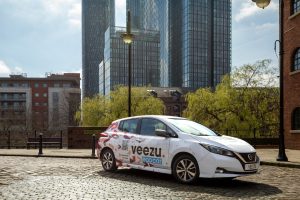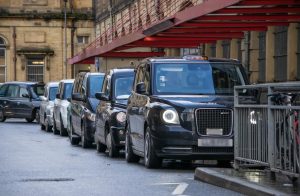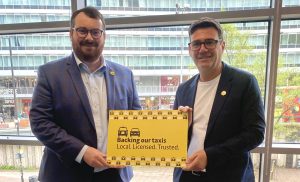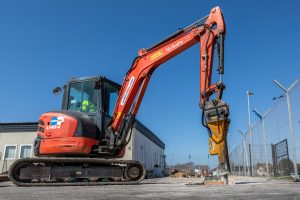City to open temporary cycle lanes to assist recovery from COVID-19
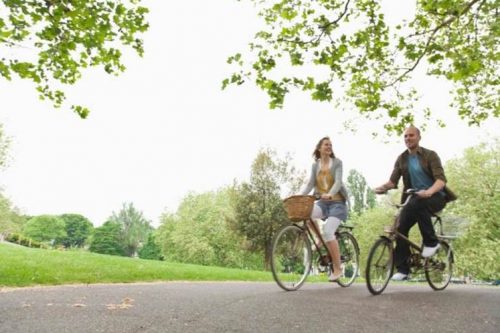
Liverpool is to introduce a vast network of temporary cycle lanes to help kick-start the city’s recovery from the COVID-19 pandemic.
Mayor of Liverpool, Joe Anderson, has today (May 13) approved a £2m package to introduce potentially up to 100km of pop-up cycle lanes along key routes into and within Liverpool city centre.
The programme of measures are also set to include new street furniture in the city centre to enable people to socialise safely at distance and ease the way for pavement cafes to operate once restrictions are lifted.
Late last month Manchester City Council announced plans to introduce its own range of pop-up cycle lanes in the centre of the city.
The move by Liverpool follows a review of traffic movements in the city on how best to support people going back to work as the Government begins to slowly ease lockdown restrictions for certain sectors.
Two key corridors have already been identified for temporary cycle lanes – with five more major routes under review – and are set to be introduced by this weekend. They are:
Sefton Park Perimeter: The route from Sefton Park – Aigburth Drive, across Ullet Road across Croxteth Road on to Sefton Park Road and along Lodge Lane. Across Upper Parliament Street junction and pick up cycle path on Smithdown Lane. From Crown Street on to Oxford Street East. Left on to Mason Street to Irvine Street. Across Edge Lane on to Mount Vernon Green and on to Hall Lane finish.
West Derby Road Route: West Derby Road (junction with Green Lane inbound and outbound), Rocky Lane, back along West Derby Road, left on to Farnworth Street right on to Kensington.
As well as the network of temporary cycle lanes, the mayor is also looking at the temporary widening of pavements around transport hubs within the city centre to enable social distancing, and has instructed the council’s highways department to revamp the citybike scheme.

Joe Anderson
Liverpool City Council is currently undertaking a £45m redesign of the city centre, which has seen widening of pavements on key routes such as Victoria Street, introducing 11km of new permanent cycle lanes and is about to look at expanding its 20mph zones, but the mayor said the time has come to be “as radical as possible” to ensure the improvements to the city’s air quality in lockdown continue for years to come.
The mayor is also inviting councillors, businesses and the public to come forward with ideas on how to improve access for cyclists and pedestrians around the city centre.
Mayor Anderson said: “The COVID-19 pandemic has impacted our way of life beyond imagination, but the challenges it has presented has also provided us with a once in a lifetime opportunity to reimagine how we use and travel within our cities.
“We are already doing much to alter how people move around Liverpool city centre, but we must now go further than we ever dreamed possible and use our highways network in a way which balances the needs of our economy, our health and our environment.
“This £2m programme for temporary cycle lanes is just one step on the long road to recovery. Hopefully these measures will provide businesses and their workforce strong alternatives if they don’t want to use public transport and don’t have access to a car.
“But we need to look beyond the short term which is why I’m asking the public and stakeholders to come forward with their own ideas and suggestions to help shape our city’s future for the long term.”
Simon O’Brien, Liverpool’s Cycling Commissioner, said: “This terrible disease has meant we had to change how we live our lives overnight. Now it’s time to change the way we live in our city for the future.
“These pop-up cycle lanes will allow everyone to make a choice of how we travel around Liverpool. It is also an amazing opportunity to test out the permanent network of cycle lanes that the mayor has asked me to help create in the next few years.”
On April 30, Manchester City Council announced its own plans to create an enhanced shared space for pedestrians and people on bikes on Deansgate, enabling visitors and workers to socially distance more easily as they return to shops and offices in this thriving part of the city centre.
It said the part-pedestrianisation will create new space for events and markets to be installed, stimulating activity and increasing footfall as restrictions on movement to limit the spread of COVID-19 are lifted.
By encouraging the use of sustainable modes of transport, it is also intended that the recent drop in air pollution and congestion will be maintained, supporting the city’s target of becoming zero-carbon by 2038 at the latest.
The council is finalising arrangements for a closure of Deansgate between King Street West and Blackfriars Street.
This will initially take place under a temporary ‘experimental’ traffic order, allowing officers to assess the impacts of the measure and make any necessary changes, with a view to potentially bringing forward a permanent closure of part of Deansgate.
The temporary closure will be carried out using removable bollards, which can be taken down over a short prescribed period once per weekday, allowing windows for local businesses to accept deliveries.
Manchester City Council has been working with partners to draft a new City Centre Transport Strategy for public consultation, with a focus on reducing reliance on car journeys and promoting cycling, walking and public transport as preferred transport modes.
In other busy areas of Manchester, available space for pedestrians is set to be increased by using heavy-duty ‘Rhino’ barriers to create extended footways.
The planned intervention will allow people to walk from public transport hubs to nearby shops or their place of work, while observing social distancing guidance.
The first footways to be widened are set to be on Princess Street and London Road in the city centre.
Feasibility studies are currently being carried out by council officers to inform the exact stretches of roads where footways will be widened, with a further series of city centre locations and district centres being assessed for similar interventions.

Cllr Angeliki Stogia
Executive member for the environment, planning and transport, Cllr Angeliki Stogia, said: “When the essential lockdown measures start to be lifted, we need to make sure that there is more space for people to walk in the city centre and busy district centres.
“That’s why we’re planning these changes, which will aid the economy in its recovery, boost air quality and contribute to the city’s ambitious target of becoming zero-carbon by 2038 at the latest.
“Temporarily closing part of Deansgate to traffic will help us to understand the benefits of such a measure.
“Our aspiration is that it could become a permanent change, but it’s important to stress that this would only happen after an open conversation to give all residents, businesses and other affected parties the chance to have their say.
“Rather than going back to business as usual, we want to work with people who live and work in the city to give them the opportunity to travel more sustainably, enjoying cleaner air and a less congested city.
“Putting these measures in place will help our city’s economy not simply to recover, but to prosper.”


